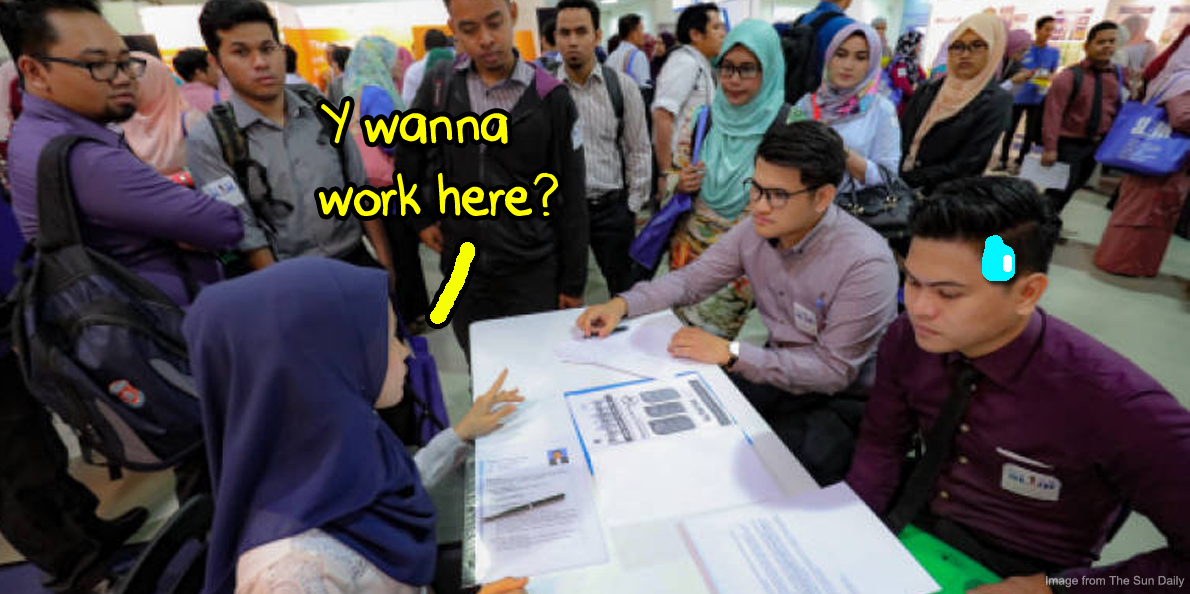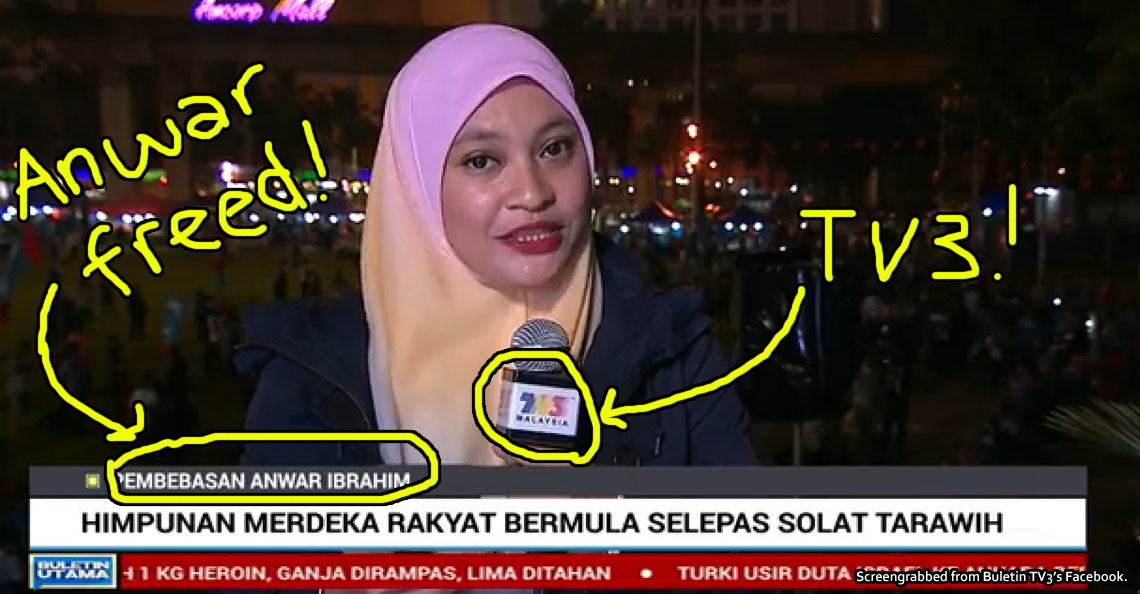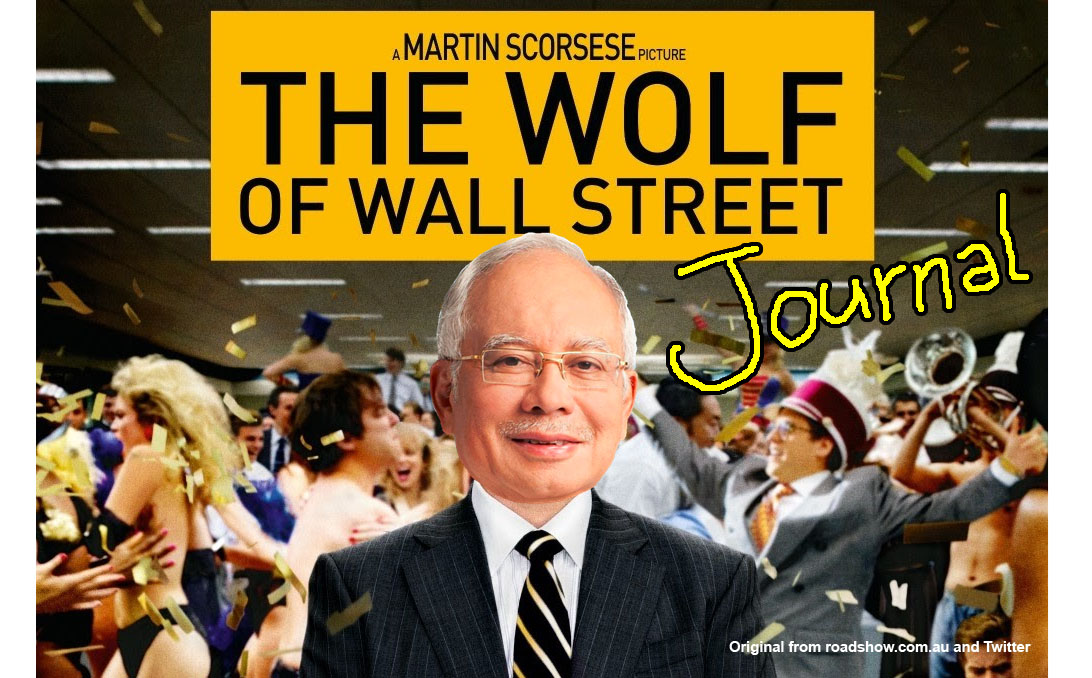Malaysian politicians actually debated properly??! We found 5 epic examples
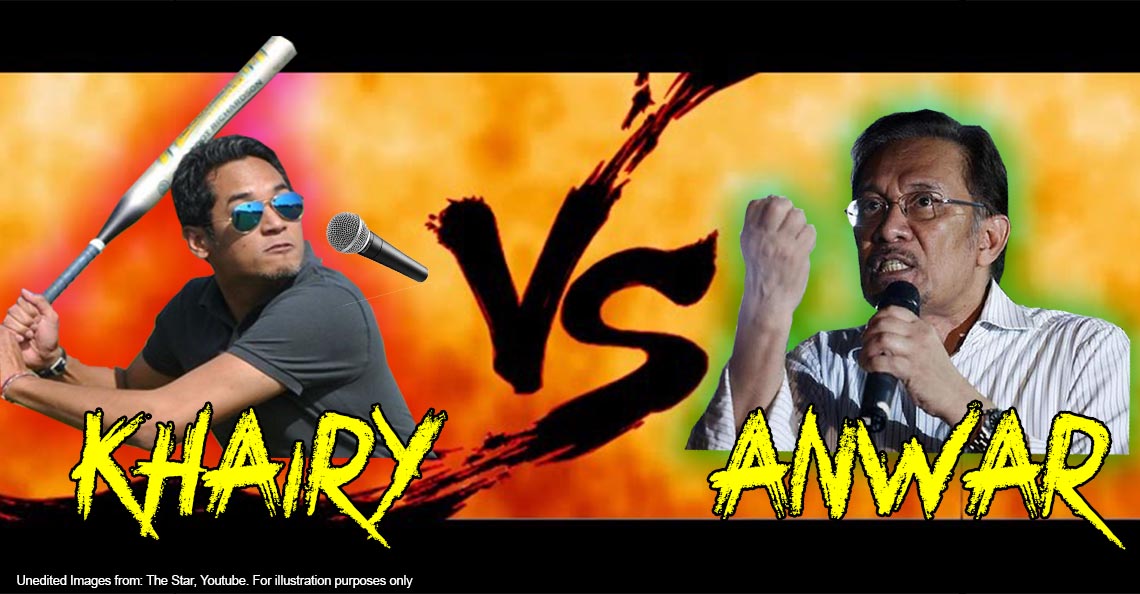
- 1.2KShares
- Facebook1.1K
- Twitter10
- Email8
- WhatsApp19
Good or bad, like it or not, the United States is still seen as one of (some would argue the most) the most influential countries in the world. So when their elections come about, Malaysians generally get caught up in the heat of the election fever as well – especially with the Presidential debates.
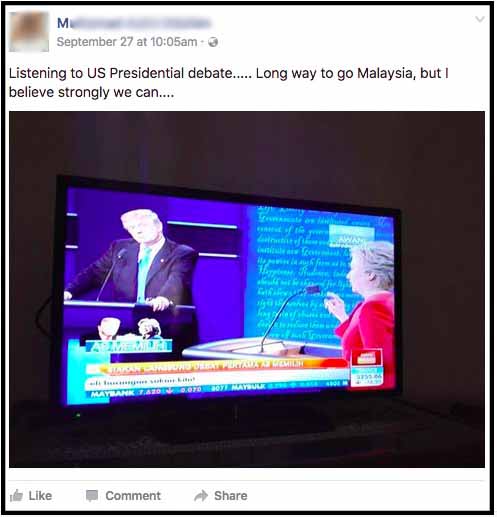
 In fact, some are even asking for Malaysia to adopt the Presidential Debate format – to have candidates go toe to toe arguing their stance and policies on live TV.
In fact, some are even asking for Malaysia to adopt the Presidential Debate format – to have candidates go toe to toe arguing their stance and policies on live TV.
And double in fact, this isn’t an unpopular opinion since PM Najib has gone on record saying a debate will not happen in Malaysia because it’s against our culture.
“If there is a need for debate between leaders, then there can be debates. But it is not a political culture as a whole in our country’s system.” – PM Najib, as quoted by Malaysiakini.
If you think about it, he may be right since, like most Asian cultures, we’re a collectivist society that prefers non-confrontation – meaning that we prefer to use face-saving strategies like indirect hinting and encouragement. The other argument from Dr. Mahathir is that we aren’t mature enough as a society to engage in proper public discussions since we get too sentimental and emotional to appreciate rational arguments.
But on the other hand, the title of Asia’s best debater is currently held by a Malaysian named Syed Saddiq (who’s also part of Mahathir’s new political party btw), and past political debates have shown that politicians on opposite sides of the fence can actually hold a proper debate without them or the audience flipping tables (or middle fingers). So without further debate, let’s get down to 5 videos that show how political debates CAN work in our country after all:
1. The one when Rafizi asked Khairy to join the Opposition
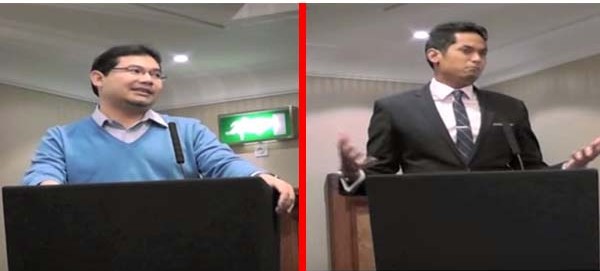
“It’s an open secret that you don’t have a smooth ride with UMNO. … So with all these obstacles, with all the potential and the contributions that you can make to society, have you perhaps thought that it is better to find a home in Pakatan Rakyat? Because you look like us, you are around our age, and most of the time you sound like us.” – Rafizi to Khairy at a 2012 UKEC debate in London
Taking place during the United Kingdom & Eire Council of Malaysian Students (UKEC)’s event in London in 2012, Rafizi and Khairy debated on how close Malaysia was to achieving Vision 2020 from economic and socio-political perspectives.
In response to Rafizi’s invitation, here was Khairy’s answer…
“I expected to come here for a slugfest between Rafizi and I, but what I got was an invitation to join his party. [But] I believe in a reform mission within my party. If Rafizi tells me I have no impact on policy at all, look at the reforms taking place today. All these things are policy positions that I have taken as Ketua Pemuda UMNO and it it has become the mainstream view of the party.” – Khairy’s response to Rafizi.
Full video of the debate :
Both had equally strong arguments about the government’s policies and how they were implemented – like how Rafizi pointed out that the government was good at promising change but not all that great at keeping to these promises, and Khairy questioning the unity of the parties within Pakatan Rakyat. At the same time, they also came to agree on certain certain issues like the need to embrace racial and economic equality as well as an open democracy.
But above all that, one major highlight (judging from the audience laughter) was the lively banter between Rafizi and Khairy which included them throwing many lighthearted jibes at each other, such as Khairy’s opening comment that Rafizi’s sweater was in Keadilan colors. What what makes this comment epic was that, after his somewhat-serious response to Rafizi’s offer of joining PKR (quoted above), Khairy was given the chance to ask Rafizi one question. He looked straight at Rafizi and said:
“No, seriously, where did you buy the sweater?” – Khairy, in total seriousness.
Who won?
Of course, we aren’t in a position to determine who won and who lost so we’re gonna ask ugaiz instead:
2. When UMNO/MCA debated DAP/PAS and everyone was really nice to each other
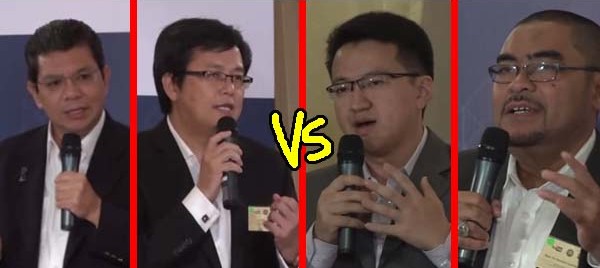
“For the accusations if BN stole from PR’s manifesto – Yes. If you look into the title of the BN manifesto, “Janji ditepati, harapan rakyat”; it is similar to “Pakatan Harapan Rakyat”. This goes to say BN has already admitted their issue is about doing something for the people. … We started with our manifesto in 2009, so to say that we were the first to pioneer this manifesto and if someone comes in later, then it’s to say that they’re copycats.” – Mujahid Rawa, when asked if BN “borrowed” from Pakatan’s manifesto.
This epic 2-on-2 tag team debate was organized by the Centre for Public Policy Studies (CPPS), and asked each side which three issues they think would sway votes towards their respective coalitions. Saifuddin’s reply to Mujahid Rawa quick and painless:
“I think for GE14 we have to do another race – who announces their manifesto first.” – Saifuddin Abdullah, just before doing a mic drop.
Full video of the debate:
According to Saifuddin, the three factors that voters would be looking at are Governance, The Economy, and Inclusiveness while Mujahid Rawa’s focus was on Good governance, Young voters, and Nonracial politics.
These views led to some really interesting arguments such as where the BN side criticized Pakatan’s populist approach – being on the side of the “common man” against an uncaring elite group – as being impractical in a real-world setting, while the Pakatan side criticized BN’s “cash handouts” like BR1M as a short-term way to make the Rakyat happy rather than fixing issues of corruption and other money leaks.
But what makes this debate really interesting is the format. Each speaker was given a strict timer with the mics being turned off once the final bell is rung (like what happened to Mujahid Rawa). Also, to counter attendees who launch into monologues during the Q&A session, their questions were instead written on paper and randomly drawn from a box by the speakers.
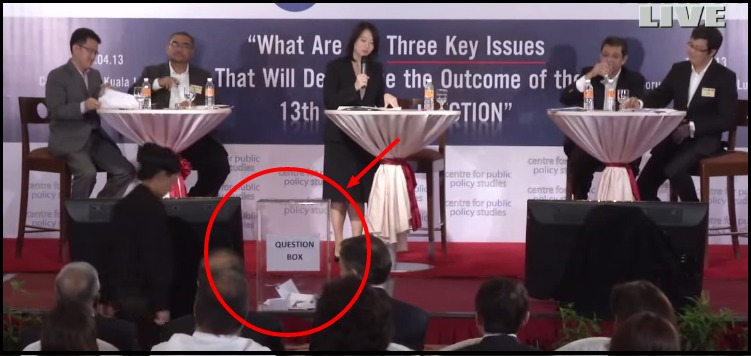
Who won?
3. When Anwar Ibrahim shared his knowledge of Europe with Shabery Cheek.
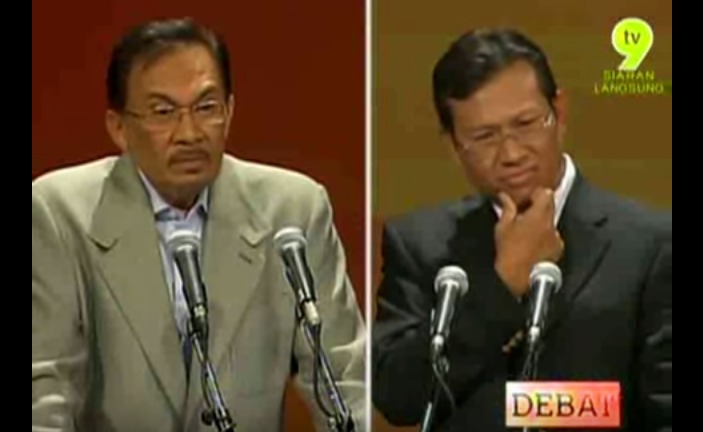
Kalau kita terus memberi subsidi yang banyak kita akan mewujudkan keadaan bahawa wang negara yang sepatutnya dilaburkan untuk kepentingan rakyat terpaksa digunakan untuk menampung subsidi minyak … Kenapa kita tidak berikan wang terus kepada rakyat? Kita tanya Finland, tanya Norway tanya negara-negara maju yang lain yang dikatakan paling kurang rasuah. Mereka juga tidak subsidi dan mereka menunjukkan prestasi ekonomi yang lebih baik… – Shabery Cheek, on why petrol subsidies are a thing of the past.
Sponsored by local news portal Agenda Daily, this debate was a pretty big deal when it happened in 2008. For one, it was aired live online and on selected local TV stations and second, it came about at a time when Malaysians were faced with paying more for petrol after being used to subsidized prices for so long. In any case, here’s Anwar’s response:
“Pendapatan per kapita Norway 10 kali lebih dari Malaysia. kita bicara soal harga minyak ini keperitaan rakyat yang miskin. Jadi kalau kita nak bandingkan dengan negara industri yang capai tahap yang baik, itu agak sukar. … Prasarana yang disediakan dengan jumlah yang besar kita sebut insentif. Tolong rakyat miskin, kita panggil subsidi … dan subsidi itu nama yang cukup negatif dan busuk sekali.” – Anwar Ibrahim, who knows the per capita income of Norway off-hand.
Full video of the debate (in 6 parts) :
The arguments were pretty straightforward. Anwar proposed lowering the petrol prices by 50 sen, which he estimated would cost the government RM5 billion. He argued that RM2 billion of this money would come from just reducing Tenaga Nasional’s excess standby power supply by 20%, and that subsidies were needed to help the lower income groups. On the other hand, Shabery Cheek argued that the cost of a petrol subsidy would be too high and would benefit the rich more than the poor, so it was a better idea to remove the subsidies and putting the money straight into the hands of the poor via cash handouts.
Who won?
4. When Rafizi asked MCA about race-based parties, and ACTUALLY got a good answer
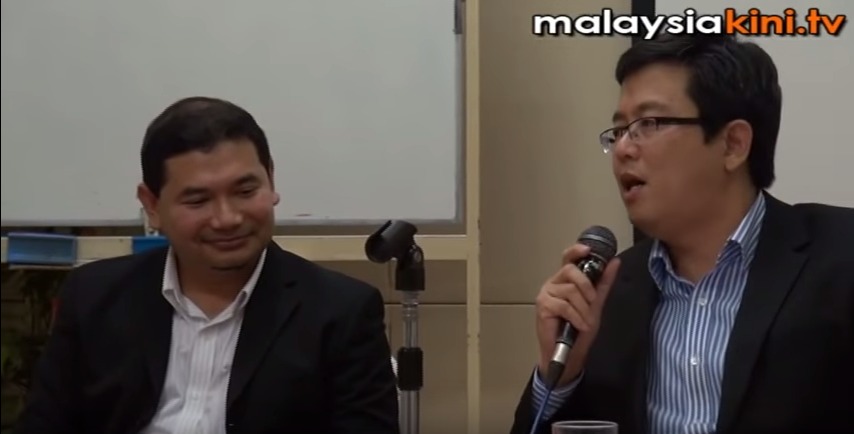
“Talking about DAP, some will regard them as ultra-ethnic dominators because they contest only with MCA or maybe Gerakan. They will never go to the Malay heartland. That’s for PAS to contest. Sometimes I feel it’s because of the demographics of this country. Kuala Krai will be Kuala Krai. Ampang New Village will be Ampang New Village and I cannot foresee in the next 30 years it will change into Kampung Melayu.” – Senator Gan Ping Sieu, pointing out that two of PKR’s allies are also a race-based parties.
Organized by the Foreign Correspondent’s Club of Malaysia, this relatively short debate discusses which kind of political party is needed in Malaysia – monoethnic (race-based) parties like MCA or multi-racial parties like PKR.
“What was unthinkable perhaps during Senator Gan’s time is now something we can quite fathom with; for example having a party with a stronger non-Bumiputra voice, doing away with racial policies. The younger generation are absorbing these new ideas much faster than even the politicians can conceptualize.” – Rafizi Ramli, explaining why multi-racial parties are the way to go.
Full video of the debate:
Gan Ping Sieu’s argument was that Malaysia isn’t exclusively a monoethnic party system, but rather a multiparty political system (a coalition of different political parties) like BN and Pakatan Rakyat. The difference is how much of a voice each component party has within the coalition, although he also acknowledged that MCA has to move beyond communal (like Chinese community, Malay community, etc) issues and look at them on a national level instead. Rafizi on the other hand argued that PKR was the acid test that a multi-racial party would work in Malaysia, and the way to move forward was to work towards removing the fear and suspicion among the races and to reward people based on ability rather than race.
Who won?
5. When Khairy and Ambiga shared a moment – being gassed by the FRU
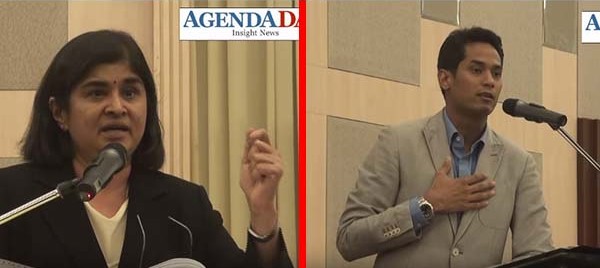
“Come together with us, let’s go see SPR. I don’t care if you demonstrate on Saturday, that’s your right; but come to SPR and I will be there. Let us look at the names, the IC numbers. Let’s end this once and for all.” – Khairy, turning on the charm.
Organized by the Malay Mail just three days before Bersih 3 in 2012, this debate was largely centered on the Election Commission’s trustworthiness when it comes to ensuring a clean and fair election, and whether or not Bersih is getting people to rally for the wrong reasons. But Khairy didn’t have to worry about standing outside the SPR waiting for Ambiga though:
The difference between you and me, YB, is that you believe what the EC says. We don’t. And a lot of people don’t. And I gave you reasons for that. … We will debate it. In front of the MPs, we will put up our figures, the EC will give answers. They will put up their figures, we will give answers. I think that’s the best way to do it. – Ambiga, turning on the #savage
Full video of the debate :
As a whole, this debate is a lot more serious compared to the Rafizi-Khairy one, with the only funny moment being the organizer’s weird choice of James-Bond like music at the beginning that prompted Khairy to do a little jig:
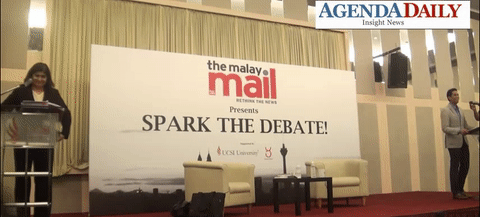
The meat of the debate itself was mostly centered on Ambiga’s use of data found by Ong Kian Ming’s Malaysia Electoral Roll Analysis Project (MERAP) versus Khairy’s data from the Elections Commission itself. For instance, Ambiga claimed that the EC was tainted with possible fraud, such as the case of 42,000 “questionable” voters who were either really old or had genders that didn’t match their names. Khairy on the other hand said that this was due to mistakes in the National Registry, and that many of the old people were still alive as they showed up to collect the RM500 BR1M subsidies
What’s interesting is that there were more than a few occasions in which audience members were shushing each other (Such as in 6:12) although the moderator still had to remind the crowd that “it was a debate, not an auction” midway through. Still, it was pretty civil and no middle fingers were flipped that day.
Who won?
But would a Presidential Prime Minister Debate really work in Malaysia?
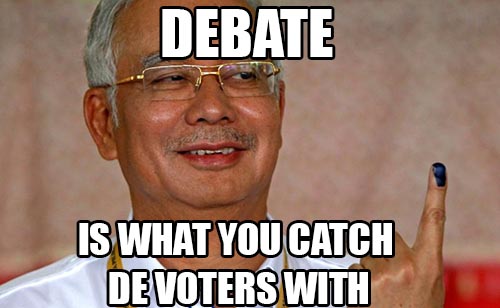
One interesting point to note about the US Presidential debate is that it actually isn’t part of their constitution, meaning that it’s just an accepted form of practice because voters have found it useful, otherwise there’s no reason to continue it. In the US at least, debates were found to be most useful in swaying undecided voters since they get to directly “compare” the arguments and mannerisms of each candidate.
Compared to speeches among people who already support you, a live debate is kinda like a taster to how well the candidate will respond to real-world challenges. This, coupled with the ability to fact-check the points of each candidate even as the debate is happening forces the candidate to be as prepared and truthful as possible
But here’s a problem… Malaysia is a multi-party coalition, so how do we select who actually goes to the podium? We briefly spoke to Wong Chin Huat from local think-tank Penang Institute about this and he says:
“Malaysia is a parliamentary system, not presidential. What we should have is a party/coalition leader debate. It would help people understand what ideological and policy positions the parties/coalitions stand for. Such debates would not only make politics more personal and focused on leadership, but also translate manifestoes from stacks of papers to a battle of words.” – Dr. Wong Chin Huat, Head of Political and Social Analysis at Penang Institute, in conversation with CILISOS.
So what we’ve seen is that – with the exception of some *cough* – these videos show that many of our political leaders aren’t actually adverse to debates and most actually do a decent job at it. While we may not agree on which candidate may win the debate, there’s a strong argument that the overall winner would be the Rakyat. So what do you think? Should political debates be a part of Malaysian elections?
- 1.2KShares
- Facebook1.1K
- Twitter10
- Email8
- WhatsApp19



